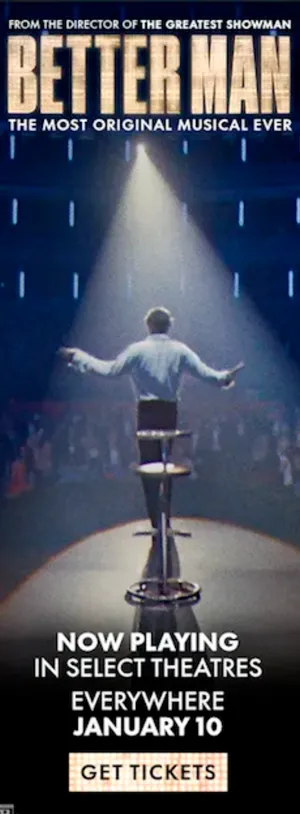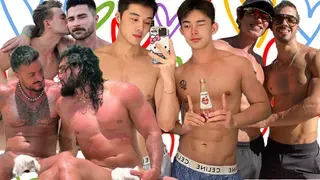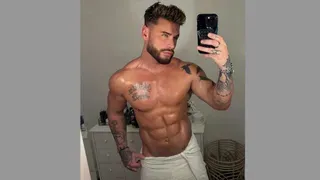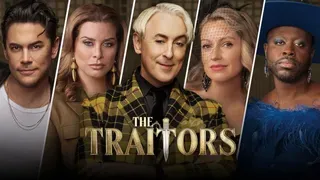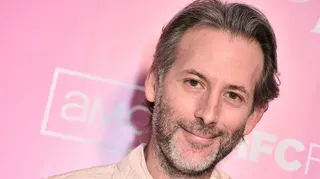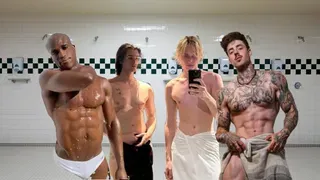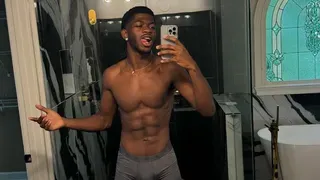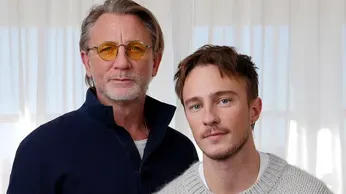
November 26, 2024
Close 'Encounters': Luca Guadagnino and Daniel Craig Talk about Sex, Love, and 'Queer'
Kilian Melloy READ TIME: 8 MIN.
William S. Burroughs may have achieved notoriety for "Naked Lunch," a 1959 novel that's equally satirical and scatological, but it was his semi-autobiographical short novel "Queer" that caught the attention of Italian filmmaker Luca Guadagnino as a teenager.
Guadagnino has long wanted to make a film version of the book; he took a stab at a script at age 21. Now, with a screenplay by his "Challengers" scribe, Justin Kurtizkes, Guadagnino has finally fulfilled his lifelong ambition with a film that has drawn raves for the performance that star Daniel Craig achieves in the role of William Lee, a gay American expatriate living in Mexico who becomes enamored of a fellow American. "Outer Banks" star Drew Starkey plays former serviceman Eugene Allerton, whom Lee catches sight of in a bar and amorously pursues.
The movie delves deep into the place and time – and Burrough's peculiar and specific imagination – and offers sizzling gay sex scenes. But there's also a deep emotional core to the story.
"There was something about this book that engraved in me this kind of hyper-romanticism that [Burroughs] brings on the pages," Guadagnino mused in a recent Zoom press conference in which he and Craig took questions. "And this search for contact never changes.... This quest for contact is a beautiful idea to explore, and to bring to life on screen."

Burroughs wrote "Queer" in the early 1950s, when censorship around gay themes practically guaranteed it would not be published. Unsurprisingly, the book didn't see print until 1985, well after Burroughs had established himself as a major (if controversial) literary voice with "Naked Lunch" and, after that, subsequent novels such as "The Ticket That Exploded" (1962), "Nova Express" (1964), "Cities of the Red Night" (1981), and another Guadagnino favorite, "The Wild Boys" (1971).
But the vintage origins of "Queer" didn't worry Guadagnino.
"The magical fascination of the language of Burroughs is something that will last forever, so you are not bound to anything of the moment," the "Call Me By Your Name" director declared. "He is a writer that is going to travel across time. In fact, he has been a model for many, many generations.
"At the same time," the director added, "I don't think the book was written as a pamphlet about the way in which American expatriates, maybe homosexual expatriate Americans, live their lives hiding in plain sight in Mexico City. I think the book is about the thing that is inside of you that wants to go toward the other, and what you want from the other. And I think these themes and feelings are gonna be relevant forever, because the most terrifying thing that we face in our life is the moment of encounter with the other."

The encounters in "Queer" are many, and they are hot; out singer Omar Apollo is also featured in the film in a brief turn as one of Lee's hookups.
The steamy content is not a problem for Craig, who has never shied away from playing gay. He starred opposite Derek Jacoby in the 1998 John Maybury biopic "Love is the Devil: Study for a Portrait of Francis Bacon," playing the painter's boyfriend (and showing more than a little skin in the process). Since then, he's starred as gay American detective Benoit Blanc in the "Knives Out" movies, and during his 15-year stint as James Bond – an icon of heterosexual masculinity – Craig brought a hint of bisexual energy to the role, hinting at the superspy's same-sex assignations in the 2012 Sam Mendes-directed "Skyfall."
Drew Starkey has spoken about having been "nervous" when it came to the film's steamy passages but has also said that he and Craig had "fun" with the film's erotic content. For Craig, though, it wasn't the hot and heavy stuff that proved worrisome.
"It's the first day. That's it," Craig said when asked if anything about the screenplay made him anxious. "I've stopped looking at scripts, going, 'That's going to be a hard bit. This is going to be an easy bit.' That doesn't help in any way, shape or form, because that leads to over analysis, and over analysis will kill it."

Craig reckoned that preparation is a must, but even so, "knowing your lines, all the work you've done before you go in and do it – [on] the first day you're shitting yourself, and everything you do feels unnatural. You think, 'I can't act anymore. This is just awful. I don't know what I'm doing here.' But I think everybody's feeling exactly the same. So, you just get through it, and after that, it's just day by day. You just get on with it."
As for what drew him to the role, Craig was quick to say the major selling point was the chance to work with Guadagnino. But also, he added, the character was too juicy a role to pass up.
"I think that what fascinated me so much about this part is his emotional journey, and I could relate to most of it," Craig reflected. "We thankfully don't live in a country where [gay sex is] an illegal act anymore, but people haven't changed, have they? All I can do is try and do it justice. That's all I can do."
Moreover, he added, he enjoyed being "offered a character that is properly complicated." Lee, he explained, "really embodied somebody who I felt was many things, all of which were fascinating to me, all of which I thought I could key into. And it's rare that you get a chance to do a character as layered as this."
Summarized the actor: "It was just too tempting and a wonderful opportunity."
Kilian Melloy serves as EDGE Media Network's Associate Arts Editor and Staff Contributor. His professional memberships include the National Lesbian & Gay Journalists Association, the Boston Online Film Critics Association, The Gay and Lesbian Entertainment Critics Association, and the Boston Theater Critics Association's Elliot Norton Awards Committee.
